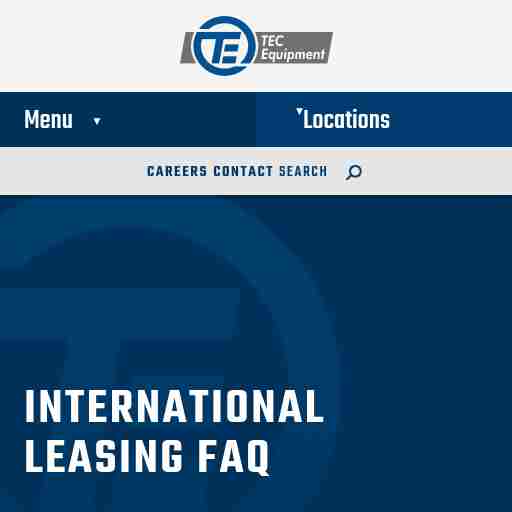Leasing is a popular financing option for businesses that want to acquire equipment or property without purchasing it outright. International leasing, also known as cross-border leasing, allows companies to lease assets in foreign countries. In this comprehensive guide, we will explore the benefits and challenges of international leasing.
International leasing is a type of lease agreement where the lessor (the owner of the asset) leases an asset to a lessee (the user of the asset) in a foreign country. The lessor can be located in any country and the lessee can either be located in the same country as the lessor or in a different country.
The asset being leased can be anything from machinery and equipment to real estate properties. The lease agreement specifies the terms of use, payment schedule, and other conditions that both parties must adhere to.
There are several benefits to international leasing:
While international leasing offers many benefits, there are also several challenges to consider:
It is important to distinguish between international leasing and international financing. While both involve acquiring assets in foreign countries, they differ in the following ways:
The global market for international leasing is expected to continue growing as businesses seek new opportunities for expansion. However, navigating cross-border transactions will require expertise in legal, financial, and cultural issues. As technology continues to advance, we may see new tools emerge that make international leasing even more accessible to businesses around the world.
International leasing can be used to acquire a wide range of assets, including machinery, equipment, real estate properties, and vehicles.
The tax implications of international leasing can vary depending on local tax laws and regulations. In some cases, leasing may provide tax advantages for both parties.
The risks associated with international leasing include legal and regulatory differences, currency exchange risks, and cultural differences. It is important to have expertise in these areas when navigating cross-border transactions.
International leasing offers businesses a flexible financing option for acquiring assets in foreign countries. While there are challenges to consider, such as legal and regulatory differences and currency exchange risks, the benefits of international leasing can make it an attractive option for companies seeking new opportunities for expansion.

TEC Equipment Leasing has acquired both International Leasing Co. locations in the Seattle area. We understand that business transitions can create ... Everything you need to know about TEC Equipment Leasing’s acquisition of International Leasing Co.’s locations. TEC Equipment Leasing has acquired both International Leasing Co. locations in the Seattle area We understand that business transitions can create uncertainty and want to make sure we answer your questions. TEC Equipment Leasing has acquired substantially all of International’s assets and will continue to operate the Seattle and Kent locations. The International team is now part of the TEC Equipment Leasing family and will be there to meet your lease and rental needs and service your equipment. In short – it’s business as usual. What can you expect from TEC Equipment’s Leasing team in the future? Going forward, TEC Equipment Leasing is committed to delivering high-quality customer service and will always strive to be your Best Business Partner. Our lease and rental team takes this commitment to heart in every aspect of our customer relationships. As a wholly-owned subsidiary of TEC Equipment, TEC Equipment Leasing is part of the largest Mack and Volvo dealership group in the United States. This gives you access to premium lease and rental equipment from these two respected manufacturers and many others, including Isuzu, Autocar, Freightliner, Hino, and Mercedes. New TEC Equipment Leasing Locations Monday-Friday: 6:00 am to 10:30 pm Monday-Friday: 6:00 am to 11:00 pm Lease and Rental Sales Inquiries Director of Leasing – North Region Maintenance Contact – Seattle
---

Nov 16, 2023 ... Fitch Ratings has affirmed AVIC International Leasing Co., Ltd.'s (AVICIL) Long-Term Issuer Default Rating (IDR) at 'A-', Short-Term IDR at 'F1' and ...---

Jul 25, 2023 ... It's a pretty bad thing for Pike. They usually raise the rent with every new lease, and yet somehow this one just slipped through the cracks. You've been blocked by network security. To continue, log in to your Reddit account or use your developer token If you think you've been blocked by mistake, file a ticket below and we'll look into it.
---